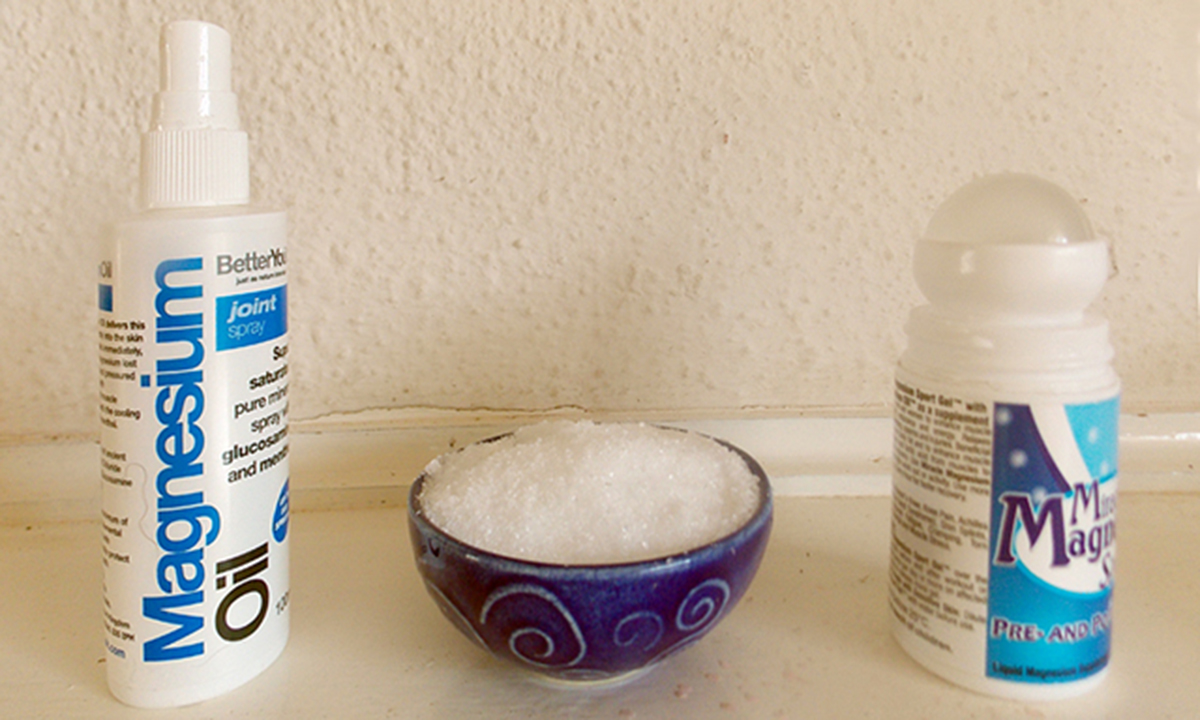Table of Contents
It’s really a no-brainer if you know anything about nutritional and health supplements, but as Dr Cabot points out, the various supplements that contain magnesium also contain other substances, and the amount of magnesium varies, sometimes dramatically. As an example, she says magnesium oxide contains 60 percent magnesium, while magnesium carbonate contains 45 percent, and magnesium ascorbate only six percent (with a whole lot of other options inbetween.)
If you buy a product that contains 500 mg of magnesium glycinate, your will only get 50 mg of magnesium.
Another medical doctor who has written much about the miracle healing properties of magnesium is American Dr Carolyn Dean who, like Cabot, focuses not only on how magnesium can help, but also how drastic the effects of magnesium deficiency can be. She points out that magnesium oxide, which is the least expensive of all forms, is only four percent absorbed, the balance going through the intestines.

She points out that magnesium citrate is the form most commonly used, and lists several others that are often included in medication due to the fact they have a less laxative effect on the body. Generally, she says, magnesium oil, which as mentioned earlier is a generically controversial product, is normally made with just more than a third magnesium chloride and balanced with trace minerals and sea water. It does not contain oil.
Dr Dean uses several different types of magnesium, including magnesium oil, though she doesn’t state which particular product, and there is no doubt that they vary in terms of quality. She prefers the oil, because when she takes magnesium “by mouth,” she tends to have “a laxative reaction.” But she warns that it is essential to read the labels on products, and to understand what you are reading.
Personal Experience Using Magnesium
My own awareness of “miracle magnesium” started quite recently when I entered a 10 km run/walk competition and we were given a South African produced magnesium sports gel freebie after finishing (picture, top right). Supplied in a similar form to roll-on deodorant, the label indicated it was primarily sold to help prevent cramping, muscle spasms, and to remove toxins and promote recovery of muscles after exercise. But the advertising pamphlets claimed it could be used to treat just about everything from mental stress to period pains.
Then I tried it, and it definitely helped to ease muscle pain after long-distance aerobic walking. I spoke to other walkers and runners and found that many of them used this very product, particularly to counter cramping. I subsequently discovered another UK-produced magnesium oil that also contains glucosamine and menthol and is manufactured to be sprayed onto joints (picture, left). This I find to be even more effective, though it is clearly personal preference.
At about the same time I realized that Epsom Salts – in itself a miracle product – is magnesium sulphate (picture, center). Dissolved in warm water, it is promoted as a product that will draw toxins from the body, reduce swelling, relax muscles, and sedate the nervous system. It is also a great skin exfoliator and is excellent for drawing splinters and soothing insect bites. Growing up in the hot African sun, I have used it for decades to relieve the effects of sunburn, without realizing it is a form of magnesium. Since I started walking competitively two years ago, I often soak in a hot bath with Epsom Salts after major exertion, and find it does wonders for my muscles.
READ Magnesium for Weight Loss: Does It Really Work?
At the end of the day, it’s important to recognize the general unwillingness of many medical and clinical practitioners to acknowledge the need for nutrient supplementation in our diet. To quote Dr Dean: “It all stems back to a medical education that is funded by drug companies that have no vested interest in promoting nutrients” that cannot be patented and don’t cost much.
- www.nlm.nih.gov/medlineplus/druginfo/natural/998.html
- ods.od.nih.gov/factsheets/Magnesium-HealthProfessional/
- drcarolyndean.com/magnesium_miracle/
- www.needs.com/product/HWC08-MAG-01/l_Magnesium
- MAGNESIUM The Miracle Mineral “You won’t believe the DIFFERENCE it makes to your HEALTH and your SEX LIFE!” by Dr Sandra Cabot.
- Magnesium by Dr Sandra Cabot. Active Interest Media, Inc., California 2011 [free ebook from
- www.nutritionalmagnesium.org/listmessenger/public/Magnesium_ebook.pdf]
- Photos © Penny Swift
- Important notification about information and brand names http://www.steadyhealth.com/polices/terms-of-use#copyright


Your thoughts on this